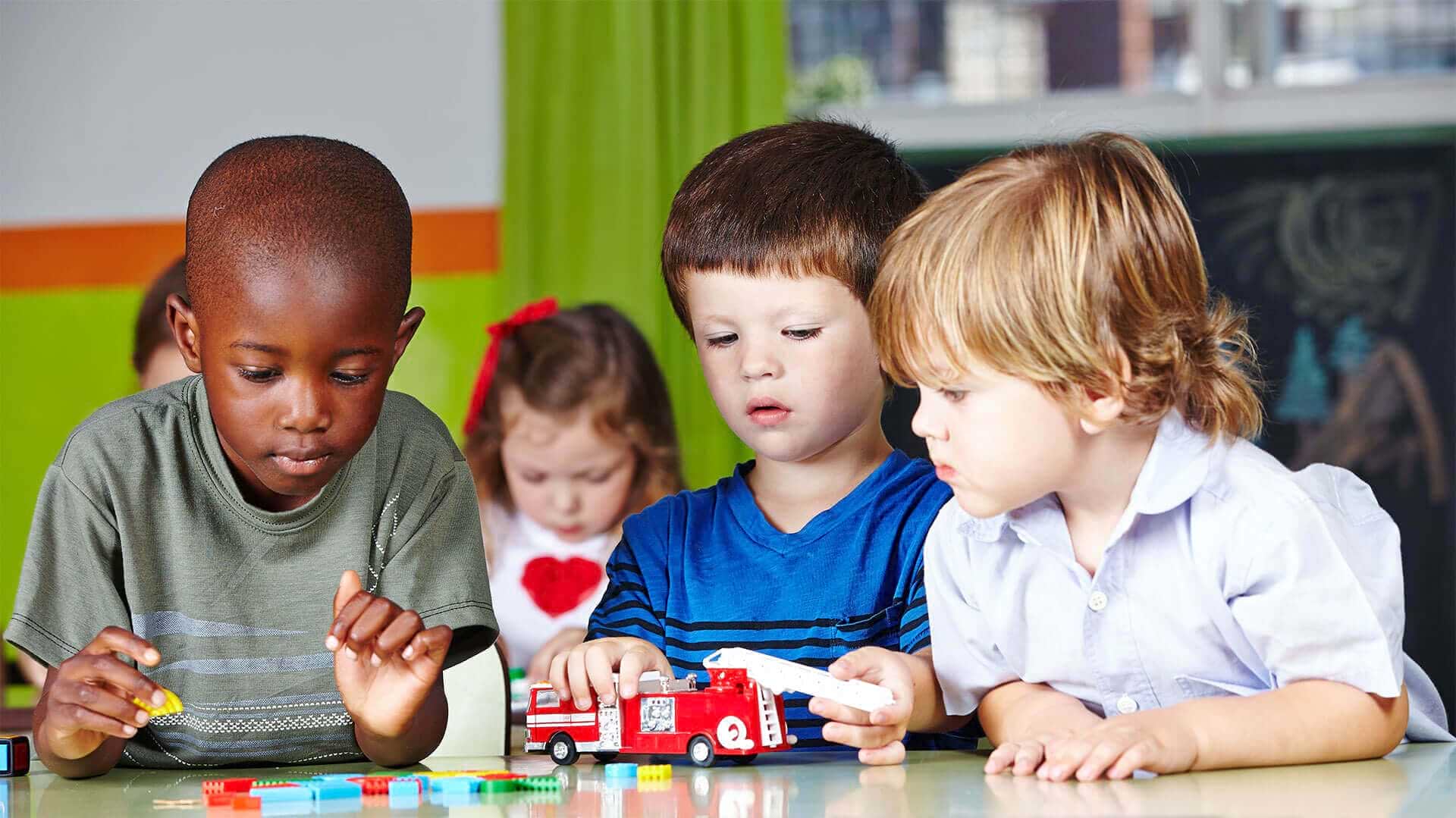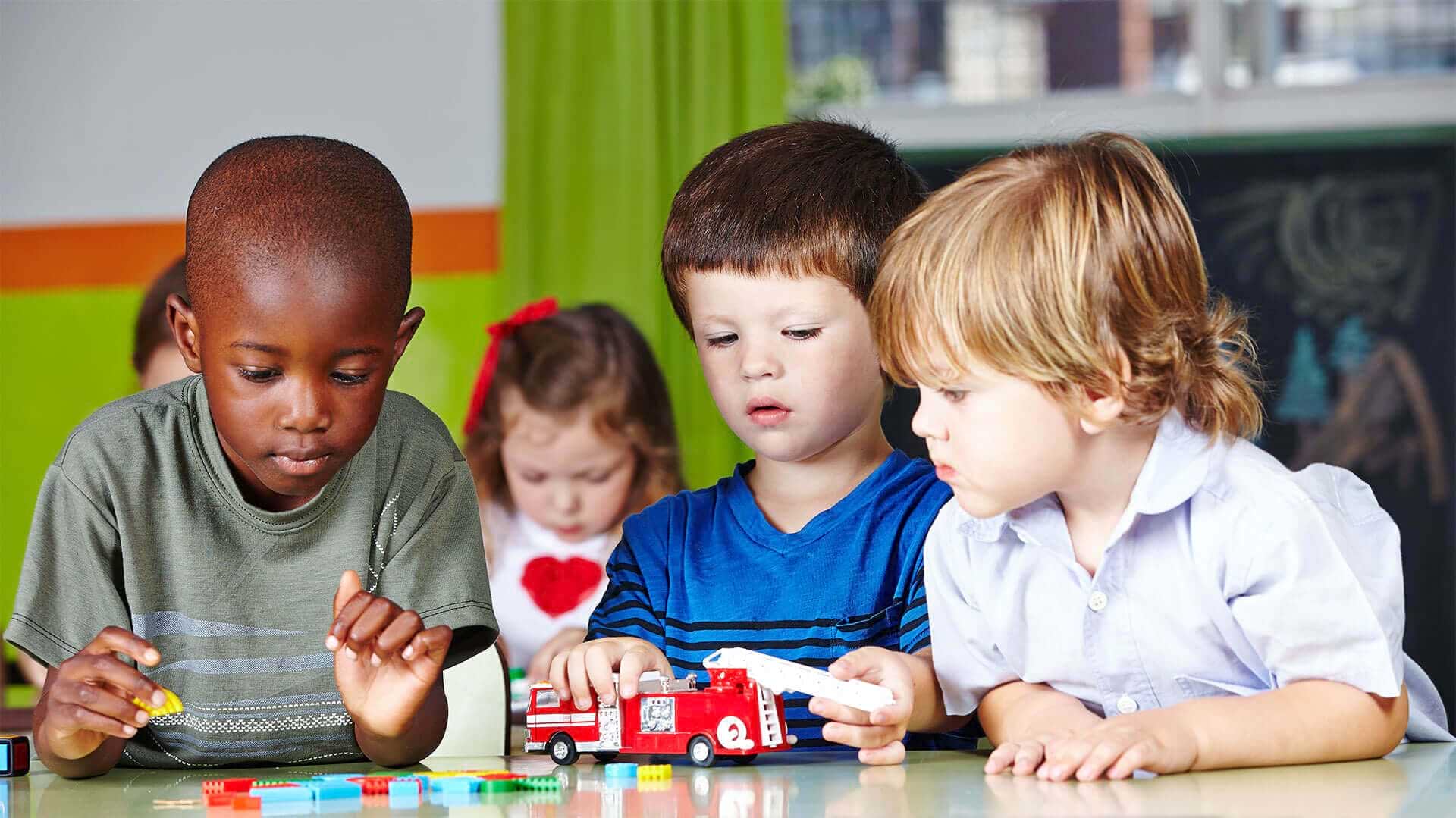
There is no reason to wait to introduce your kids to science, technology, engineering, and math (STEM) subjects until they go to school. While they may not be ready to start coding or calculating math problems, you can start to introduce STEM education for preschoolers with some fun hands-on activities.

Benefits of STEM for kids
Getting your child excited about learning and helping them see it can be a fun process can set them up for a successful school experience. You may even have a child that could excel in a STEM career in the future. But STEM also offers other benefits for all ages, including soft skill development. Some of the abilities your kids can work on while doing STEM activities include:
- Critical thinking
- Problem-solving
- Creativity
- Teamwork
- Self-confidence
Children spend the first five years of their lives engaging with the world, gaining life skills, and an understanding of how things work. Giving them a love of STEM at an early age can set them up for a lifetime of learning and growing.
9 STEM Activities for Preschoolers
STEM education for preschoolers doesn’t need to be complex. Rather, keeping it simple can help preschoolers have fun and avoid frustration. You’ll also want to keep in mind that children at this age don’t have long attention spans and can lose interest quickly. Here are some of the best STEM activities that you can do at home or at a preschool or daycare that will engage young learners.
Science experiments for preschoolers
Kids at this age love to get messy and science experiments for preschoolers are the perfect excuse to let them lose and allow them to get dirty.

Ice melt
In this experiment, kids will learn more about states of matter – or how one element like water can change. Start by freezing some water. This can be in a dish, container, or even a few ice cubes. (Consider adding some food colouring to the water to make it more interesting for kids to watch) Next. Put the ice on a flat tray and let the kids play around with it for a few minutes. Then pour some salt over the ice and let the kids watch it melt.
Baking soda fizz
You can teach kids about chemical reactions with this experiment. Put some baking soda into a clear pop container. Then ask your children to pour a little bit of vinegar into the container and watch it fizz up. Be sure to do this one over a sink or outside so you won’t have a big mess to clean up.
Walking water rainbow
For a more complex science activity, you can try the walking water rainbow. To get started, gather six glasses or jars. Then tear up some paper towels so you have the same size strips. Place the paper towels in the glasses or jars so that they touch the bottom and form a bridge to the next glass. Remember you don’t want it sticking up too much in the air, but just so the paper towel is placed in two containers at a time. Once you’re sure the strips of paper towel will fit, put them aside. Have your children fill the first, third, and sixth jars with different food colouring. Create a circle with the glasses and put the paper towels into them all. After a few minutes, your preschooler will be amazed to see the colour “walking” up the paper towel and into the next container.
Engineering activities for preschoolers
Children are natural builders. They love to create and imitate what they see around them. Here are some activities for you to help them develop an appreciation of engineering.
Marshmallow challenges
This activity only requires toothpicks and marshmallows. Invite your child to build something from their imagination or provide them with some guidelines to make it more challenging. The only risk with this one is that they might eat some of the building supplies.
Build a ball run
Encourage your kids to love engineering by allowing them to build their own ball runs out of cardboard tubes. Gather together toilet paper rolls or paper towel rolls, some tape, and decorations. Let your kids create a vertical maze for plastic balls and see if they can harness to power of gravity and creativity to get the ball to the bottom of the maze.
Popsicle stick house
This is an activity that you can do together. Use popsicle sticks and play-doh to help the sticks stay together as you build your own stick house.

Hands-on activities for preschoolers
While some STEM education for preschoolers requires you to take the lead and demonstrate the different concepts, many preschoolers learn best when they get involved in more hands-on activities.
Sink or float
Kids love to play with water and in this activity, they get to discover more about the mass and weight of objects. Using plastic eggs, have your children fill them with different things – from rocks to feathers and more. Then fill a sink, tub, or clear container with water. Let the children drop the eggs in one at a time to see which ones sink and which ones float.
Stuffy chair
Gather together different materials and invite your children to build a chair for their beloved stuffy to use. Remember that you’ll need to have some glue or tape to help them stick the materials together into a comfortable seat for their stuffy.
Number treasure hunt
This activity combines counting with sensory fun that preschools will love. You’ll need a large bin with some sensory items like coloured rice or sand. Use large block numbers from a puzzle or cut them from cardboard. Bury the numbers in the sensory bin and let your little ones dig to find them. As they find the numbers, have them put them into order from 1-9 to reinforce early math skills.
Children are never too young to engage with STEM topics and concepts. Preschoolers love to learn and explore the world around them. You can help get them off to a great start by offering some STEM activities they can engage in all year round.
Continue your child’s love of STEM with one of our after-school programs designed so kids have fun and cultivate skills they can use at school, at home, and wherever they go.




